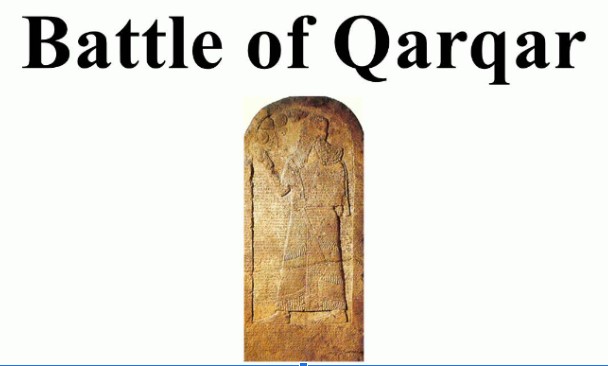
The Battle of Qarqar is a significant historical event that has intrigued scholars, historians, and biblical enthusiasts for years. This monumental clash, often referred to as the Battle of Karkar, sheds light on the ancient conflicts that shaped the Near Eastern world. Let’s delve into the details of the Qarqar battle and its biblical connections, exploring its implications and historical context.
Understanding the Battle of Qarqar
The Battle of Qarqar occurred in 853 BCE near the Orontes River in modern-day Syria. This battle saw the forces of the Assyrian king Shalmaneser III face a coalition of twelve kings, including King Ahab of Israel. The Assyrian empire, known for its military prowess and expansionist policies, met unexpected resistance from this formidable alliance.
Qarqar in the Biblical Context
While the Battle of Qarqar is not explicitly mentioned in the Bible, its significance can be inferred through the historical context of the period. King Ahab, a prominent figure in the Old Testament, is a key player in this battle. His participation underscores the geopolitical dynamics of the time, providing insights into the broader biblical narrative.
The Coalition Against Assyria
The coalition against Assyria at the Battle of Qarqar included various states from the Levant and beyond. Key members of this alliance were:
- King Ahab of Israel: His involvement highlights the interconnectedness of the biblical and historical records.
- Hadadezer of Damascus: Another significant figure who played a crucial role in the resistance against Assyria.
- Irhuleni of Hamath: His participation further exemplifies the unity among the regional powers against a common foe.
Archaeological Findings and Maps
Archaeological excavations and findings have provided invaluable insights into the Qarqar battle. Artifacts and inscriptions, particularly the Kurkh Monolith, detail the events and the scale of the conflict. These discoveries help historians piece together the realities of the battle and its aftermath.
Moreover, biblical archaeology maps have been instrumental in locating Qarqar and understanding the topography of the ancient battlefield. These maps offer a visual representation of the strategic positions and movements during the battle, enriching our comprehension of this historical event.
The Aftermath and Historical Impact
The Battle of Qarqar had profound implications for the ancient Near Eastern world. Although the Assyrian king Shalmaneser III claimed victory, the resistance demonstrated by the coalition forces marked a significant check on Assyrian expansion. This battle exemplifies the fierce opposition faced by empires and the resilience of smaller states.
Conclusion
The Battle of Qarqar remains a pivotal event in ancient history, bridging the biblical narrative and historical facts. Its study not only illuminates the past conflicts but also enhances our understanding of the intricate relationships and power struggles of the time. As we uncover more through archaeological findings and maps, the legacy of Qarqar continues to captivate and inform scholars and enthusiasts alike.
For more detailed explorations of biblical battles and archaeological discoveries, stay tuned to Biblical Archaeology Maps and Findings.





















